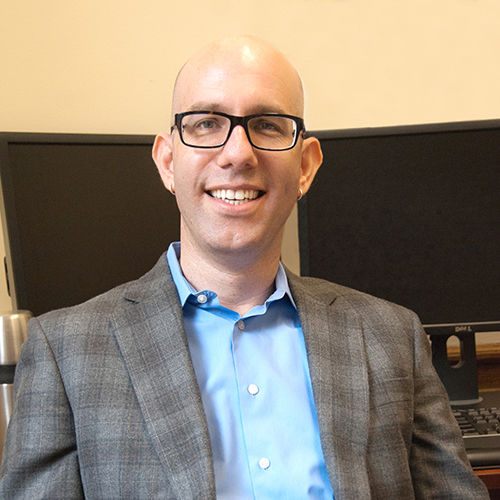The American public is largely united in viewing frontline healthcare providers and medical scientists as the most credible sources of information about the COVID-19 virus and in believing that they should wield the greatest influence on policy-making in response to the pandemic.
Those findings headline a new survey by The Public Matters: How Americans View Education, Health & Psychology, a public opinion project based at Teachers College, Columbia University, which sought to assess the credibility of different stakeholders in shaping policy around the COVID pandemic. Conducted in late April and early May, the national survey of 1,459 adults also found that national elected officials, business leaders and religious leaders were viewed as least credible, with a large gap separating them from both the scientists and the doctors and nurses.
Headline finding: 85 percent of the public viewed healthcare providers as knowledgeable about COVID-19, and 83 percent viewed medical scientists in the same light.
The Public Matters survey is the first to focus on how the public views key stakeholder groups within the specific context of the COVID pandemic. The survey also is unique in measuring the credibility of these stakeholders with the public rather than how much the public trusts them.
“‘Trust’ is a vague term that can mean very different things to different people,” says Oren Pizmony-Levy, Associate Professor in TC’s Department of International and Transcultural Studies and Co-Director (with Aaron Pallas, TC’s Arthur I. Gates Professor of Sociology & Education, of The Public Matters. “We instead use the term ‘credibility,’ which, as we define it, has three main components. First, how much does the public believe that a particular group understands what COVID is all about and to address the challenges it has created? Second, does the public believe that the group is acting to serve the collective good rather than its own personal interests? And third, do we – the public – want this group to have a major influence on policy development?”

FOCUSING ON CREDIBILITY Pizmony-Levy calls "trust" a vague term. The survey instead measures credibility, defined as understanding of the virus, unselfish motivation and meriting a role in influencing policy. (Photo: TC Archives)
In The Public Matters’ survey, 85 percent of the public viewed healthcare providers as knowledgeable about COVID-19, and 83 percent viewed medical scientists in the same light. Healthcare providers scored highest on the survey’s measures of knowledgeability and policy integrity — that is, the idea that their advice is good for the country, not just themselves — and were seen as the group most committed to the general good. The credibility of healthcare workers appeared to owe primarily to their experience on the frontlines of fighting the pandemic.
[Read the full report by The Public Matters.]
“Healthcare providers are benefiting from the perception that if you’re a frontliner, you see the challenges of taking care of people in mass volumes,” Pizmony-Levy said. He added that the credibility of healthcare providers among all demographics echoes The Public Matters’ research on public perceptions in education, where teachers are seen as more knowledgeable, and their influence most desirable in policy-making, compared to education scholars.
Healthcare providers are benefiting from the perception that if you’re a frontliner, you see the challenges of taking care of people in mass volumes.
—Oren Pizmony-Levy
“Moving forward, if states want to ensure that the public is united behind efforts to reopen businesses, schools and other venues, leadership may want to consider bringing health care workers and medical scientists to the fore in policymaking roles,” Pizmony-Levy said.
Specifically, more than 8 in 10 Americans surveyed viewed doctors and nurses as being well or very well informed about the outbreak, and medical scientists as only slightly less so. And while conservative respondents did find these groups somewhat less credible than did liberal respondents, they still ranked them far ahead of all other sources.
Still the survey found more pronounced fissures when the respondents were segmented along other demographic lines. For example, in findings that suggest a general youth skepticism toward all sources, older Americans are almost uniformly more likely than younger Americans to invest credibility in any of these groups. Thus, 77 percent of respondents age 65 and above believe healthcare providers are well informed, while only 41 percent of respondents ages 18-24 share that belief. Thirty-nine percent of the oldest group believe state and local elected officials are well informed, while only 18 percent of the youngest group agree.
Moving forward, if states want to ensure that the public is united behind efforts to reopen businesses, schools and other venues, leadership may want to consider bringing health care workers and medical scientists to the fore in policy-making roles.
—Oren Pizmony-Levy
While the gap is less pronounced, there is also more skepticism in general among suburban respondents compared to rural and urban respondents. For instance, 70 percent of rural respondents said they believe healthcare providers are well informed, compared to 61 percent of urban respondents and only 53 percent of suburban ones. Suburbanites were also more skeptical of scientists, elected officials, business leaders, and religious leaders.
And politics was hardly a non-factor. While overall, international medical and health organizations — essentially, the World Health Organization (WHO), which was mentioned by name in the survey questions — enjoy a high level of credibility, some 53 percent of liberals responding to The Public Matters survey said they believe that — these organizations are well informed about the pandemic, while only 31 percent of conservatives shared that outlook.
Furthermore, while national elected officials were among the groups least trusted by all respondents, 25 percent of conservatives said they believe that national elected officials are well-informed about the pandemic, while only 15 percent of liberals and 8 percent of moderates concurred. In general, conservatives were more inclined to view sources other than health professionals and scientists as credible. A similar pattern holds for business and religious leaders, whom conservatives were more likely to find credible, though within limits.
The public is not impressed by business leaders’ credibility in the context of COVID-19. But that’s where you see variability between political groups.
—Oren Pizmony-Levy
“The public is not impressed by business leaders’ credibility in the context of COVID-19,” Pizmony-Levy said. “But that’s where you see variability between political groups.”
For now, he said, the experts seem to have the upper hand, suggesting that “re-opening” will only attract public confidence when the doctors and scientists endorse it. But he adds that the picture the survey painted is volatile, and not just because rates of new COVID-19 infections and deaths in the coming weeks could scramble public views. (He plans to continue this research with further samplings over time.) The political confrontations suggest that any consensus is fragile, and the data show possible fissures that could become major points of opposition.
